Going Back to Alberdi
A walkthrough of Milei's deregulation decree and the "Bases and Starting Points for the Freedom of Argentines" law proposal.
Welcome Avatar! As we’re closing in on the first full month of the Milei government in Argentina, it’s time to go over the two main game changers for the country’s economy: the deregulation decree, and Omnibus Law Milei dropped at the Senate. With extraordinary sessions in place, and opposition politicians crying about being robbed of their summer vacations, we can expect these 2 items to be treated quickly in the upcoming weeks.
Decree vs “Omnibus Law”
Milei has hardly been in office for a month and has already proposed and done more to change the Argentine economy than many previous administrations did during their full term.
One of the things that might cause some confusion is the difference between the proposed law changes “Bases y Puntos de Partida para la Libertad de los Argentinos” and the mega deregulation decree.
The DNU (Decree or Executive Order)
The DNU signed by Milei on December 20 entered into force 8 days after signing. Basically the change is almost immediate after the President signs off on it, and afterwards it will have to go through either the Senate or Congress to make the changes permanent or reject them.
Cristina Kirchner changed the way decrees work in Argentina, giving presidents more power without having to go through Congress first.1
For an Executive Order (DNU) to cease to be in force and be repealed, that decree must be rejected by both legislative chambers. If only one of them approves it, the decree is valid, as well as if it is not processed by neither of the chambers.
The decree cannot be amended, so it either accepted in its entirety, or rejected.
In Argentina governing by decree or Executive Order is very common, and it is not new. Milei is also not “governing by decree” when compared to previous administrations.
The vast amount of total decrees were issued during Peronist presidencies (non-Peronists like Macri, De la Rúa, and Rodríguez Sáa, only appear at the bottom of the list):
The Omnibus Law
Since tax reforms and reforms to the electoral system have to go through parliament, the Milei administration could not include these in a decree. This is why they are filed separately under the so called “Omnibus Law”.
These proposed law changes will go through a full cycle and will be debated in Congress first, and will probably be amended if needed. This means that the final version will most likely look different than the 351 pages we have access to now.
A good summary was provided by the main man around both initiatives, Federico Sturzenegger, in his article in Perfil:
[the decree] represents just a first step in a broader reform process that President Milei has in mind. This week, it was complemented with the presentation to Congress of the law of bases and starting points for the freedom of Argentines.
This proposal includes more anti-caste and deregulation measures, with reforms in key areas such as fishing, energy and transport.
It strengthens the competition defense regime by allowing authorities to ensure that it is not the State itself (at any level) that harms competition.
Sturzenegger: Hasta La Apertura, Baby
One person central behind both initiatives is Frederico Sturzenegger, who formed part of Mauricio Macri’s presidency (2015-2019) and has been working on these changes for years.
This is one of the reasons why Milei’s administration was able to file these so quickly, because only minor changes were needed in order to fit his libertarian agenda in a better way.
While dissecting the changes we will get back to Sturze, this Patagonian rodent thinks there were a couple of items left in that should not have. More on that later.
“Derógese”: Deregulation Decree Details
Let’s start with the deregulation decree2, since it is already active and will have a direct impact on the Argentine economy.
One interesting detail is that when looking at the laws and regulations repealed by the decree, the two administrations that top the list are military dictatorships:
The mental gymnastics needed to keep those in place can only be explained through the lens of the political elite defending its privileges.
When the decree came out I posted the list with the 30 most important regulations that were either repealed or modified by it.
The main points of the decree are changes in the labor system, the simplification of some bureaucratic procedures to modernize the State and the repeal of the rental law.
Some specific items of the decree worthy of highlighting in more detail:
Labor reforms: limit the right to strike, replace compensation with unemployment funds and cut fines for employers, in addition to tougher sanctions for protests. Extends employee trial periods from the current three months to almost one year. — NOTE: As this is being written, the Justice Department has just freezed these changes in the decree; legal specialists had warned about changing labor laws through a decree, and those warnings seem to be valid.
Rent contracts: The parties may agree to contracts in any foreign currency and judges are prohibited from converting the price into pesos; debts need to be settled in that same currency (if the landlord wants to get paid in Bitcoin or empandas, that’s within his range of options now). The decree also gets rid of the limit to rent increases previously set to once every 6 months by the Rental Law.
Price Control Laws & National Products Promotion: All regulations to control prices of fix prices went out of the window, together with preferential treatment for local products.
Exports: Ends the control and regulation of prices of consumer goods, freeing exports and requiring them to only be registered for statistical purposes (previously, exporters had to register as an exporter and hope to be allowed to export). In addition, the decree seeks to eliminate export quotas in different activities.
Open Skies Policy: Enables airline companies from all over the world to begin offering domestic and international flights in Argentine territory without the need for prior agreements. Airline operators will be able to freely set prices (the previously fixed floor prices on low cost airlines end, so now they can actually become low cost).
Rural Property: The “Ley de Tierras” law that proposed limiting the concentration and foreignization of rural lands was repealed (this law put a cap on the land owned by foreigners, with a max of 15% in foreign hands per province). No province ever got close to that, and even if it did, it is very easy to just create an SA, or let a local buy it in your name, and still be owned by foreigners.
Healthcare: No more price caps on healthcare plans and generic medicine (like aspirin, paracetamol etc) should be able to be sold outside of pharmacies. This is the norm in many other countries, but of course the pharmacies started to cry doom and gloom almost instantly.
Privatizations: The decree opens up the way for privatizating public companies, but as we’ve seen in Will it Fly?, the actual privatization will have to happen on a per company basis, and in some cases will have to go through both chambers.
There are some additional changes like making it easier to transfer car ownership and giving soccer clubs the option of becoming a company.
Now let’s turn to the bigger
Background of the “Omnibus Law”
It is not surprising that Milei’s team decided to name their law proposal “Bases and Starting Points for the Freedom of Argentines” after a famous book by Juan Bautista Alberdi, for these changes are intended to have similar positive consequences for Argentina.
In 1852, Juan B. Alberdi published one of his most important books: Bases and starting points for the political organization of the Argentine Republic. This book would form the basis of the Argentine Constitution, that Alberdi would help shape and that was very much influenced by the United States’ Constitution of 1826.
In 1949 the Constitution was changed, and this was also the starting point for a tanking economy:

Milei wishes to return to the Alberdi model for the country as close as possible, and for starters that means getting rid of a lot of unnecessary State regulations in every sector of the economy.
Autist note: if you want to better understand how Argentina went from being one of the countries with the highest GDP/capita to a country in perpetual crisis mode, I recommend reading this article:
In this article you can learn more about Alberdi and how he is intrinsictly linked to planting your flag in Argentina:
The objective of the Omnibus Law is to:
promote private initiative, as well as the development of industry and commerce, through a legal regime that ensures the benefits of freedom for all inhabitants of the Nation and limits all state intervention that is not necessary to ensure constitutional rights.
As you can imagine, these “limits to unnecessary state intervention” is music to a Libertarian’s ears. Let’s dive into some of the details.
Dissecting the Proposed Changes
In the Omnibus Law, an emergency situation is declared in economic, financial, fiscal, pension, security, defense, tariffs, energy, health, administrative and social matters until December 31, 2025. This term can be extended if needed.
What this emergency does is delegate the majority of the powers to the Executive Branch:
The powers included in this law and in the terms of article 76 of the National Constitution are delegated to the national Executive Branch, in accordance with the bases of delegation established here and for the period provided above.
This would make it easier for Milei’s admin to push these changes ahead. This chapter will probably be the source of most discussion when this law is treated in Congress.
The Omnibus Law is filled with small nuggets for libertarians. For example: institutions will no longer be able to use the word "free" to promote any state service or job in municipalities, provinces or on a national level. Nothing is ever “free”, as we all know.
The biggest reforms in the Omnibus Law are the following:
Electoral Reform
The bill proposes an electoral reform with substantial changes: it aims to repeal the PASO (the PASO are the pre-elections to define candidates, through which Argentina can have 3 election rounds in case of a runoff), modify the composition of Deputies and the representation of the provinces in the lower House.
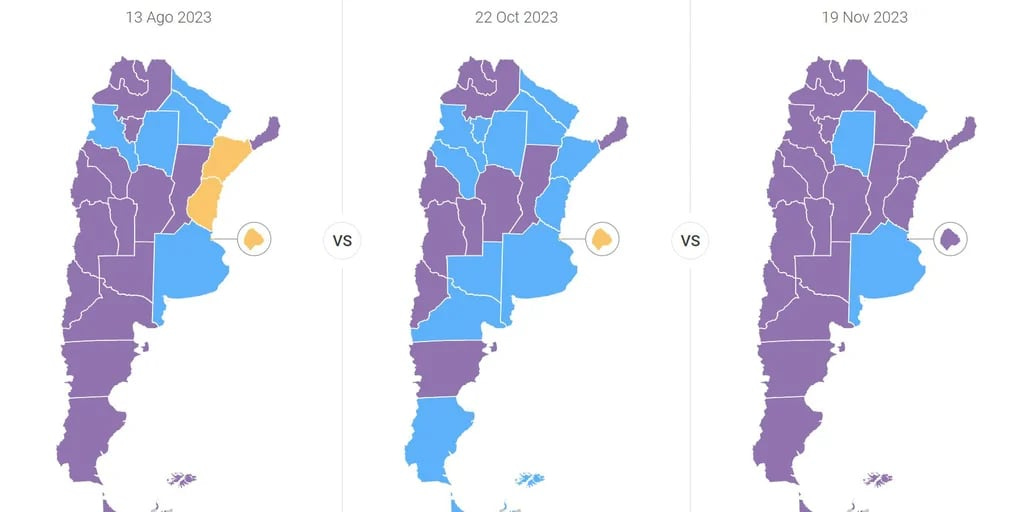
The new model involves dividing the territory of each province into as many parts or constituencies as there are seats to be elected in the lower house. Each political party, then, would present a single candidate for each constituency and in each of them a single representative would be elected by simple majority. Some critics say this will eventually benefit Peronists.
Demonstrations / Road Blocks
This initiative incorporates new controls on demonstrations into the Penal Code and aggravates the penalties for blocking streets.
Anyone who “prevents, hinders or hinders the normal functioning” of transportation is punished with up to three and a half years in prison. So if this reform is approved, road blocking protestors could be punished by effective imprisonment. Today, the maximum for that crime is two years, but this is never sentenced.
In addition, it includes sanctions for the organizers of the road blocks and makes them jointly responsible for any damages that may occur.
Self-Defense
The project expands the cases that can be interpreted as legitimate defense. For this cause of justification, the “proportionality” of the means used to repel the attack must always be taken into account.
The new project adds that “the proportionality of the means used must always be interpreted in favor of whoever acts in compliance with his duty or in the legitimate exercise of his right, authority or position.”
The self-defense section adds that “whoever defends himself against someone with a false weapon or someone who attacks with a weapon while fleeing the scene.”
Critics have said that this last part could lead to gatillo fácil, where the police shoot first and then say that the attacker was fleeing the scene (this happened a lot in the 1990s).
However, it is a far cry from the campaign propaganda against Milei according to which everyone would be crossing the street with an AK-47 if he won.
Undeclared Assets Amnesty (Blanqueo)
According to the text sent to Congress, and up to $100,000 US token in assets will be allowed to be introduced into the banking system without paying taxes. Above that amount a 5% tax will apply.
Assets can be declared inside and outside the country, such as national or foreign currency, whether in cash or deposited in bank accounts or any other type; estate; shares, participation in companies, bonds, negotiable obligations, certificates of deposit in custody, shares of funds and other similar items, and cryptocurrencies, among others.in cash, real estate or cryptocurrencies.
The deadline to join the amnesty regime will be extended until November 30 2024, but in three stages, and no additional documentation or information is needed to enter the amnesty.
You have to have been a resident in Argentina from November 2023 onwards in order to apply for this amnesty program.
Assets Tax (Bienes Personales)
One of the modifications in Personal Assets is the elimination of the rate differential for owning assets abroad. In recent years a special table was in effect, with a higher tax bracket for assets that are located outside of Argentina.
According to the initiative, all assets would be taxed equally, with rates ranging from 0.5%, for those who have assets valued at no more than $13,688,704 pesos (14k USD), up to 1.5% on the surplus of $456,290,138 pesos (443k USD) and a fixed amount of $5,389,927 (5.2k USD) if you own assets valued at more than $456,290,138.
Infrastructure / Public Works
The Omnibus Law opens the door for infrastructure to be financed by private parties and provides for the renegotiation or termination of contracts in execution.
If this section is approved, the Executive Branch may renegotiate or, where appropriate, terminate contracts of any type that generate obligations borne by the State that were generated prior to December 10, 2023.
Retirements
The project contemplates the suspension of the retirement mobility formula, without specifying the term of the measure.
Right now retirements follow a mobility formula that is not directly tied to inflation but increases retirement amounts gradually over time.
The Executive Branch can be empowered to establish a new modality for the calculation of periodic and automatic readjustments, with the only indication that “criteria of equity and economic sustainability” are taken into account.
Employment Regularization
Employers who regularize the situation of their employees will benefit by promoting a kind of labor regularization, presented as “Promotion of Registered Employment.”
The project enables the “extinction of criminal action” and “condonation of infractions, fines and sanctions” for irregularities in the hiring of an employee.
In addition, it could cancel the Registry of Employers with Labor Sanctions (REPSAL), created during Kirchnerism.
This would be a plus for hiring people locally, with less friction or need to keep them off the books.
Privatization of Public Companies
In the introduction of the Omnibus Law, the provided framework is very clear:
[…] taking into account the need to concentrate the activity of the State on its essential functions, the privatization of certain public companies is provided, within the framework of the regulations for the current effect of Law No. 23,696 on State Reform, in order to generate greater competition and economic efficiency, reduce the tax burden, improve the quality of services, promote private investment and professionalize business management.
In an annex to the law we can find the list of companies to privatize, that we already mentioned in Will it Fly?: Aerolíneas Argentinas, Correo Argentino, Trenes Argentinos, Aysa, YPF and YCRT.
Some other companies were surprising, such as the Banco Nación and all its subsidiary companies (Nación Servicios or Nación Seguros), the Casa de la Moneda and Nucleoeléctrica Argentina.
Export Taxes on Agro
According to article 200 of the law, products that do not have export rights today will be taxed through a 15% export tariff.
As of now, products from regional economies that did not have that tax pressure or that had dropped to 0% under the previous administration would be included under that 15% level.
In the case of soybeans, these will continue with export tariffs of 33%, and the Government will increase the rate from 31 to 33% for flour and oil.
Personally I think these export tariffs should all disappear, and cementing them further into law is not the way to get there. At the same time this is one of the main sources of income for the government and in the current situation it is understandable that they want to keep these taxes for now.
Mental health
The libertarian project proposes changes in eight of the more than 40 articles of the mental health law.
The most debated points of the law are around involuntary hospitalizations, and the creation of the Órgano de Revisión (Organ of Review or OR) — a body made up of lawyers and specialists to monitor compliance with the mental health law.
Going back to involuntary hospitalizations is a debated topic. On the one hand there are State actors who determine that a hospitalization is needed, while on the other having nothing like that in place can cause a serious mental health crisis like the one in the United States right now (in combination with fentanyl).
These changes could work well in combination with a structure for social services in the case of children living on the street with their parents, who often times are being forced to beg, rob or worse, instead of going to school or living in a more protected environment.
Education
The intention in the Omnibus Law is to establish important changes also in educational matters.
The law contemplates a mechanism for homeschooling modalities starting in the fourth grade of the primary level.
Another proposed change is that to enter a public university a student will be able to opt for an exam or a leveling course. Undergrad levels in public universities will continue to be free for Argentines and permanent resident foreigners, but universities could start charging a fee to foreigners.
The text doesn’t specify if that fee would apply to only foreigners on a Student visa, or temporary residents as well — if it is the former the impact would be negligible because the vast majority of foreign students are Mercosur passport holders, who immediately get temporary residency on that basis alone, with the exception of Brazilians who get permanent residency in Argentina immediately.
Fast-Track Divorce
One of the initiatives proposed by Milei’s team is the possibility of divorcing without going through the Justice system and without the intervention of lawyers.
This Fast-Track Divorce would save people a lot of pesos and could potentially save them from the 1% AFIP fee that people usually pay over the total assets involved — however, that part is not specifically included in the text.
Energy
The hydrocarbon law could undergo modifications if this Executive Branch project advances. The first shift is perceived in the second article, where it states that the main objective will be “to maximize the income obtained from the exploitation of resources and satisfy the country's hydrocarbon needs.”
Another novelty lies in the way of establishing fuel, gas and oil prices: “The Executive Branch will not be able to intervene or set marketing prices in the domestic market at any of the stages of production,” says the text.
This is a direct nod to YPF: “In the case of state companies, they will be able to sell only at prices that reflect the competitive balance of the industry, that is, at the corresponding export or import parities, as appropriate.”
Overall positive with needed changes, but as we will see in the next section, there is one major downside.
Downsides?
From what I have seen so far, one thing that needs to change in this Mara’s opinion is the section in the Omnibus Law called “Energy Transition” (Chapter IX, page 111).
Article 320 reads as follows:
320 - For the purposes of meeting the absolute net emissions objectives of Greenhouse Gases (GHG) committed by the ARGENTINE REPUBLIC in the Nationally Determined Contributions within the framework of the Paris Agreement, the NATIONAL EXECUTIVE BRANCH is empowered to assign emission rights for GHG emissions to each sector and subsector of the economy compatible with compliance with the GHG emissions goals committed by the country for 2030 and beyond.
As you may know, this is exactly the kind of nonsense that is causing Dutch farmers to revolt. Not good.
The text in question is a complete innovation with regards to eco fundamentalism, because there is no legislation in the world that confers such powers to a national State.
Argentina would be a first. Sometimes it is better not to be a pioneer, and that is definitely the case here.
In Article 321, they turn it up to 11:
321 - The NATIONAL EXECUTIVE BRANCH is empowered to annually establish GHG emission rights limits, compatible with the committed objective, of annual and mandatory compliance for all subjects of the public and private sector, in such a way that those who pollute are responsible, to the extent that corresponds to them, to meet the GHG emissions goals committed by the country and assuming that there will be a percentage of new capacity/production/demanders who must also be assigned emission rights at no cost so that this mechanism does not represent an income or discriminatory barrier.
This implies, for example, that agriculture in general and livestock in particular would receive some sort of annual GHG emission rights.
If these limits are exceeded, the sector would have to compensate for this excess of GHG emissions through some institutionalized mechanism.
Even if you believe in man-made climate change and that setting limits like this would seriously impact the climate for the better, none of this ESG nonsense is needed in Argentina, which on a per capita basis actually decreased its emissions by over 20% in the last decade, all thanks to the severe economic crisis.

If we look at that same “Climate Transparency” report, one thing pops out with the mythical year that is set into stone in many central planners’ spreadsheets: 2030. “Methane emissions need to decline by 10% by 2030”:

Overall, Argentina scores negatively according to the Eco Taliban:
The CAT rates Argentina’s 2030 climate target “Insufficient” when compared to modelled domestic emissions pathways, and “Highly insufficient” when compared with its ‘fair-share’ contribution to climate action. Argentina’s policies and actions are also rated as “Highly insufficient” as they lead to rising, rather than falling, emissions.
Translated into non-Malthusian speak: Argentina should not be able to grow one of the main sectors of its economy, namely agriculture and livestock.
Why include this?
This can be interpreted as looking good towards foreign creditors that might wire some more funds if Argentina subscribes to “climate goals”, but in my opinion these could be much looser defined under a subsecretary, as “objectives”, without the need to cement them into law.
Here we can clearly see the influence of Sturzenegger, who has been a part of Macri’s party, which in turn has always been perceptive to organizations like the WEF and other multilateral organizations that try to force their central-planned worldview on different countries.
It is surprising that apart from this article, almost none of the worldwide agricultural publications picked up on this.
In the humble opinion of this Dutch-Patagonian rabbit, this whole section should go ¡AFUERA!
Possible Outcomes
Now for the fun part: what are the potential outcomes for either the decree and the law proposal?
It is unlikely that the deregulation DNU will be rejected by both chambers. The two biggest points of debate are if it is truly an emergency and whether the queue of pending decrees from previous administrations should be treated first.
There were cases in which the Supreme Court invalidated DNUs because it considered that, in reality, there was no urgency. But these were isolated cases, and until that happened, the decrees were still in force. Still, given the state of the Argentine economy, it will be a hard sell to convince people that there is no emergency.
There have only been 2 cases of decrees in history being rejected by both chambers, so this is also not very likely.
Another positive sound towards the decree being accepted came from opposing parties this week, who indicated they wouldn’t vote against it.
Now, that doesn’t mean that certain sections of the decree cannot be stalled or voided, like we have seen happen with the labor reform section just today.
Milei indicated that in case Congress does vote against his decree, he would hold a plebiscite for the approval (however this would be non-binding)
As far as the Omnibus Law goes, that is a longer process and will likely require multiple changes. But the mere fact that Congress will have to debate these pro-freedom changes is very positive: it will be hard for politicians and unions to defend certain privileges that will be taken away with these changes.
See you in the Jungle, anon!
Law 26.122 (passed in 2006) made it easier for presidents to exercise legislative powers because the law says that the decree takes effect from its publication in the Official Gazette and that the chambers do not have a deadline to approve it. The approval of a single chamber is enough for it to remain in force. This legislation was the self-assignment of legislative powers in favor of the president.
You can read the full decree text here.





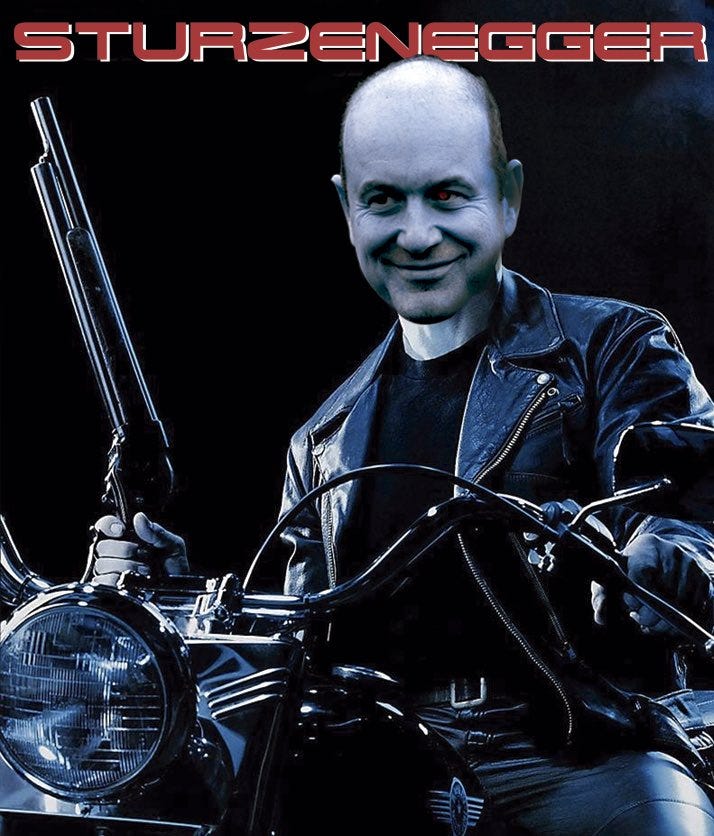



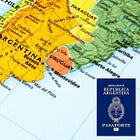
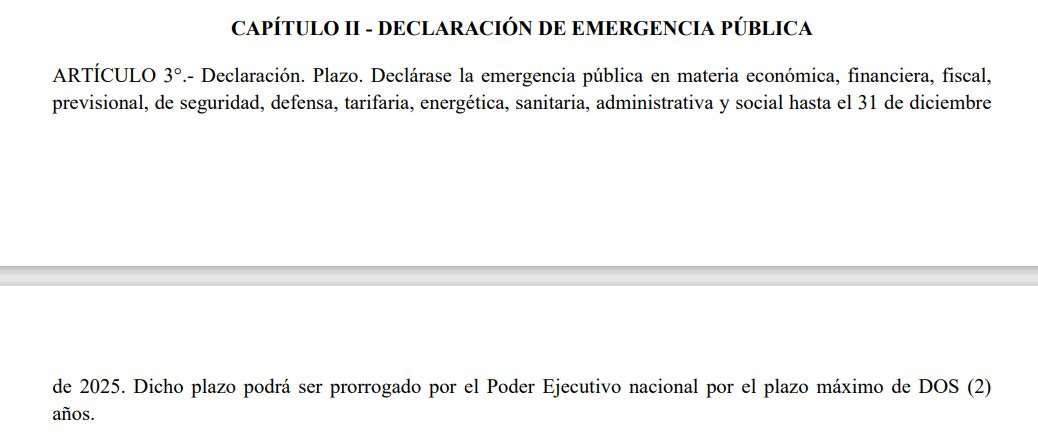




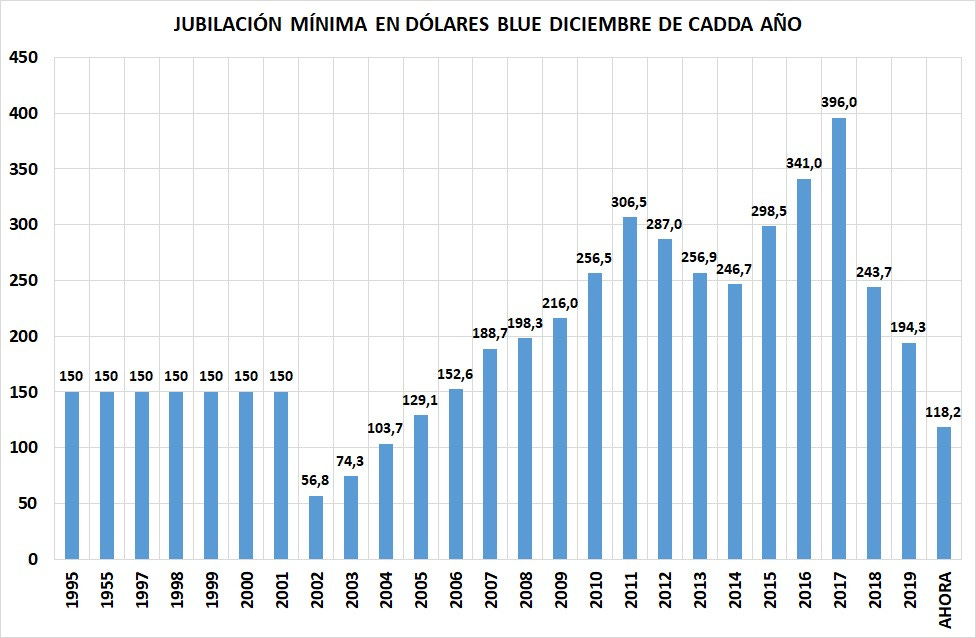




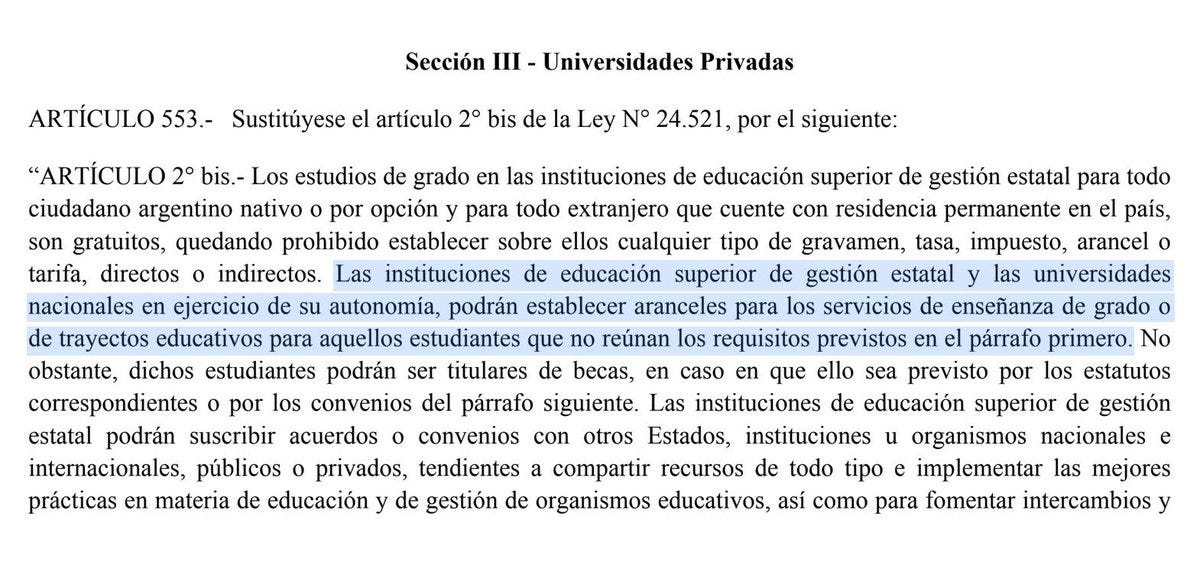



FABULOUS content as usual. You have the best content on Argentina. Especially the politics. Great stuff. Keep up the good work.
Bizarre the carbon part! I can’t believe Milei would be on board with that.